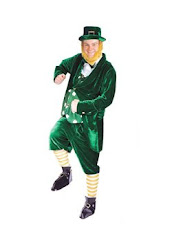One of the benefits of being back in the Army is entry into the exclusive society that surrounds our armed forces these days. It is definitely a different culture now than it was in the 1970s and early 1980s. Eleven years of being at war, with no draft to alleviate the pressure on our volunteer force, will have that effect.
As a result, I'm beginning to believe that a Warrior Class is forming, and this may create far-reaching challenges for our country. There has been a lot of discussion about how only one percent of our population has served, or is still serving in our military, since September 11, 2001, (aka the Global War On Terror, or GWOT.). That one percent, whether active duty, reserve, or National Guard, have almost all served at least a year of combat deployment...and most in the Army have two or more years of combat duty under their belts. While the sheer numbers of combat vets are smaller than immediately after World War II, the predominate difference in demographics lies in the fact that we OIF/OEF vets were 100% volunteers...not a draftee among us.
Our military members are justifiably proud of stepping up to serve when not compelled to do so, especially when the chance of being deployed was about 90%. Even those of us that strongly disagreed with the decision to invade and occupy Iraq are generally okay with the concept of not letting our unit brothers and sisters down. Professional warriors tend to think that way..."Band of Brothers" isn't a slogan, it's reality.
The American Public, as a whole, has been exceptionally supportive of our military during the GWOT. For those of us who were in the armed forces during the Vietnam War era, this attitude stands in marked contrast to the days when soldiers were spat upon in airports, and ROTC buildings were firebombed. I have really appreciated this difference, but many of my younger compatriots routinely express indifference, even annoyance when a civilian says, "Thank you for your service." On various social media sites, in groups where soldiers comment on current events or routine stupidities, many military folks post derisive blurbs about how civilians ought to keep their "thank you's" to themselves, because it doesn't mean anything coming from a non-veteran. And while those same groups brush off civilians, or even military spouses who have the gall to express an opinion about a military related topic, they are just as brutal in their dislike for anyone perceived not to be hard core combat troops, which generally means any Person Other than Grunts, or POGs. By the way, the term "Fobbit" is interchangeable with POG...it's the GWOT's equivalent of Vietnam's REMF (Rear Echelon Mother F****r), or WWII's Goldbricker/ Garritrooper (Garrison Trooper). And God help you if you happen to be a lowly reservist or National Guard member, even if you've served in combat three times longer than your active duty critic!
Anyway, to complete my thought, many soldiers allude in internet commentary that they hate the current administration for not being tough enough, having the willingness to lay waste to the Middle East, for not having served in the military, or for taking away their benefits. Some even suggest that a military-led revolution might be a good course of action. While I certainly don't believe that the majority of our military personnel would countenance the extremist views, the gap between GWOT service members/veterans and the rest of society seems to widen each year. With support for the war in Afghanistan rapidly shrinking, and recent instances of war crimes or stateside mayhem committed by current or former GWOT vets, the public is definitely less effusive in their gratitude. Add in the media's increasing tendency to portray all of us war vets as damaged PTSD-deranged simmering volcanos of hate and discontent, and we're suddenly separated by a virtual Grand Canyon.
Groups like the Iraq and Afghanistan Veterans of America (IAVA) have done yeoman work to help find common ground between vets and the public, and try to balance the media's sensationalism with rational, factual responses...but on the social media sites, an awful lot of service members criticize IAVA leadership for not being radical enough, or (ironically) being out of touch with soldiers, because most of the staff are no longer on active duty.
I started wondering if it this way after the Civil War? WWI? WWII? Korea? (I know it was like this after Vietnam, though the media seemed to pay a lot less attention to veteran's issues, and the public pretty much didn't embrace their military back then.) Again, the key difference was that during those previous wars, the military swelled its ranks with draftees, or volunteers "for the duration" of the war. Once it was over, they were discharged back into civilian life. While the transition issues were pretty similar, (I highly recommend reading WWII's premier soldier-cartoonist-writer Bill Mauldin's book, Back Home, for a former G.I.'s point of view), none of these wars lasted ten years, nor involved such a small percentage of the U.S. population.
I don't have a definitive answer to my own questions...but it sure is something to consider.
Subscribe to:
Post Comments (Atom)






Contempt for civilian leadership among the military can be traced back to the founding of our nation. The Newburgh Conspiracy of 1783, was organized by army officers angry over being unpaid and about to be short-changed on their promised pensions. They were, to a debatable degree, on the verge of "taking matters into their own hands." George Washington managed to difuse the situation in a very moving way.
ReplyDeletehttp://en.wikipedia.org/wiki/Newburgh_Conspiracy
Very true, Ted! Just one of the many reasons that George Washington was "larger than life"!
Delete